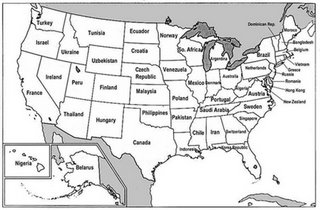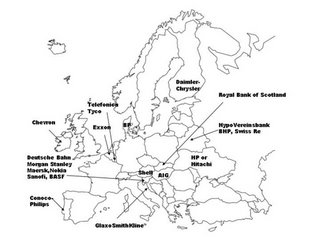'Positively limiting people’s choices'
Wednesday, January 31, 2007So, the 'how': "the Government can help people stick with their resolutions by regulating the atmosphere in which they make them. For example, it will be much easier to stick to giving up smoking after the ban on smoking in public places takes effect. It is also much easier to get fitter if an affordable gym or other sports facilities are available locally"....The report will argue that the Government can reduce the range of bad choices available by setting minimum standards, like capping the amount of salt in food or ensuring that all white goods meet basic environmental standards. People’s choices can be positively limited by government in other ways too".
And the 'why': "many new year’s resolutions have benefits for everyone, for example, in reducing carbon emissions or reducing the pressure on a tax funded National Health Service. It will argue that there is a justifiable role for the state to intervene in changing the public’s behaviour".
Over to Miranda Lewis, ippr Associate Director to sum it all up: “If people live healthier and greener lives, we all benefit through reduced pressure on the NHS and a cleaner environment. The Government needs be confident in its ability to help people to keep their resolutions and ignore the criticism that intervention is the action of a ‘nanny state’.”
Feeling nauseous? I am. So, in essence the state will
The ippr helpfully includes 'Five things you can to do to keep your new year’s resolutions'. I think they are shy seven points:
1.We admitted we were powerless without the State — that our lives had become unmanageable.
2.Came to believe that the State is greater than ourselves and could restore us to sanity.
3.Made a decision to turn our will and our lives over to the care of the State as it understands it.
4.Made a searching and fearless moral inventory of ourselves.
5.Admitted to the State, to ourselves, and to another human being the exact nature of our wrongs.
6.Were entirely ready to have the State remove all these defects of character.
7.Humbly asked the State to remove our shortcomings.
8.Made a list of all persons we had harmed, and became willing to make amends to them all.
9.Made direct amends to such people wherever possible, except when to do so would injure them or others.
10.Continued to take personal inventory and when we were wrong promptly admitted it.
11.Sought to improve our conscious contact with the State as it understands itself, asking only for knowledge of its will for us and the power to carry that out.
12.Having had an awakening as the result of these steps, we tried to carry this message to others, and to practice these principles in all our affairs.
(Shamelessly borrowed and adapted from the Alcoholics Anonymous Twelve Steps programme)






